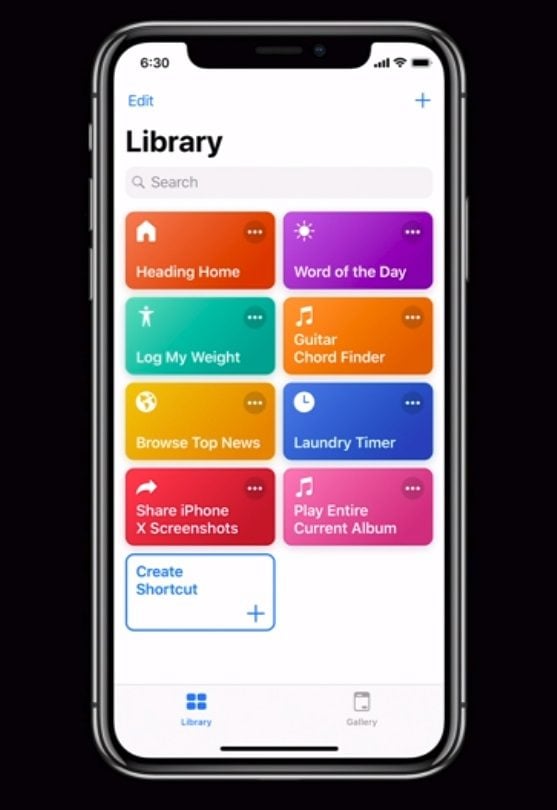Find out the week’s top mobile stories from around the world.
This week.. Facebook denies mobile data sharing broke privacy pledges, mobile gambling’s influence on mobile banking, Apple introduces iOS 12, automated shops spread in China as mobile payments take off and much more…

Facebook Denies Claims Mobile Data Sharing Broke Privacy Pledges
Silicon
Facebook has said it disagrees with claims by the New York Times that it breached privacy pledges made to the public and to US regulators when it shared information with mobile device makers.
The paper reported that Facebook shared users’ personal information with at least 60 smartphone firms, allowing them to access users’ friends’ data without obtaining explicit consent.
In some cases the data was stored on the third parties’ own servers, according to the Times.
The data included information such as relationship status, religion, political affiliation and planned events.
Read more…
How today’s banking solutions and how mobile gambling changed the banking game
Telemedia Online
The banking system in gaming, more precisely mobile gambling, is indeed setting the trends for digital banking on the whole.
Not only are the traditional forms of banking beginning their slow, yet inevitable decline and possible phasing out, but consumers are also tending to opt for the digital banking solutions available to them instead.
Taking a look at the numbers alone within the last couple of years, mobile usage and mobile users have only staggeringly increased, year after year. The projected continuation of this growth, in demand and ultimate usage, means that more and more industries and sectors will need to look to integrating digital solutions into all their product and service offerings. These solutions will need to be user-friendly and easy to access, as a means of maintaining workable channels of communications and optimally interacting with customers accordingly.
Read more…
Apple introduces iOS 12
TechCrunch
Apple announced the next version of iOS at its WWDC developer conference. While iOS 12 won’t be available before the fall, it’s always interesting to get a sneak peek at the next version of iOS.
Apple’s senior vice president of Software Engineering Craig Federighi first talked about some numbers. 81 percent of iOS users are currently running iOS 11. 6 percent of Android users are currently on the last version.
“For iOS 12, we’re doubling down on performance,” Federighi said. iOS 12 is going to be available on all devices that currently support iOS 11.
It’s interesting the Federighi talked about iOS 12 on the iPhone 6 Plus. Apps launch 40 percent faster, the keyboard comes up 50 percent faster and opening the camera is 70 percent faster.
Read more…
Automated shops spread in China as mobile payments take off
Nikkei
A retail revolution is sweeping China as companies like Alibaba Group Holding use their ubiquitous mobile payment platforms to spread unmanned systems and help brick-and mortar stores shave growing labor costs.
Workers could be seen jamming their way into a branch of Wufangzhai, a 97-year-old Chinese restaurant chain that is popular during the lunchtime rush here. But there was no sign of any staff to greet them. Instead, customers looking at their smartphones simply headed for a row of about 40 lockers after five minutes each. When they touched their phones again, the lockers popped open with their steaming hot meals inside.
Wufangzhai reopened the restaurant in January after introducing an automated ordering system from Alibaba subsidiary Koubei, which provides ancillary services for restaurants. Customers order and pay by reading QR codes with the Alipay app on their smartphone. They will even get a notification when their food is ready.
Read more…
How a 20-year old mobile technology protocol is revolutionizing Africa
Quartz
Every time you dial *XYZ# to check the airtime balance on your phone, you are using a decades old technology standard called USSD. For a very long time, that’s pretty much all it was used for, but now the game has changed.
USSD stands for Unstructured Supplementary Service Data and I suppose it never got a catchy mainstream alias because it never really took off. Mobile operators, especially in Africa — where the market is primarily prepaid—typically use USSD for their internal applications such as balance checks, top-ups, data bundles and promotions.
More recently, banks and utility companies have started taking advantage of the protocol to build mobile banking and utility management applications all across the continent.
Read more…
Telecoms Giant Wants to Move Mobile Data Top-Ups to a Blockchain
Coindesk
China Mobile Corporation, one of the three state-owned telecommunications giants in the country, is exploring the use of distributed ledger technology within its core mobile data business.
According to patent application filed with China’s State Intellectual Property Office (SIPO) in November 2016 and made public on Tuesday, the company is eyeing the development of a blockchain network to handle transaction requests for mobile data top-ups and remove the heavy processing load from its data centers.
With such a system, the document says, when a user first signs up for a network plan, an initial top-up transaction will be created together with the user’s information. This data is then stored on a blockchain that consists of what the firm calls “top-up nodes.”
Read more…
Mobile AR wars: The Apple strikes back
VentureBeat
The mobile AR platform wars were started by Apple’s Tim Cook’s “ARKit is the largest AR platform in the world”, Google’s Clay Bavor’s aim for ARCore “to take AR mainstream,” Facebook’s Mark Zuckerberg’s “making the camera the first augmented reality platform” and Evan Spiegel’s Snap being a “camera company.”
But those were just the beginning. Since 2015 we’ve said that Apple could own AR long-term, particularly the premium end of mobile AR. But if the mobile AR war has seemed a civilized affair so far, Apple’s AR announcements at WWDC were laser guided cruise-missiles carrying multiple warheads aimed at their major AR competitors.
To understand what Apple’s new initiatives could mean for Facebook, Snap, Google, Tencent, Amazon and Alibaba, let’s start with the AR components of Apple’s hardware roadmap we forecast in coming years..
Read more…
Brazil: General Data Protection Law Is Approved By The Brazilian Chamber Of Deputies
Mondaq
Due to an intense political articulation in the Brazilian House of Representatives, and despite the troubled moment in the country caused by the nationwide truck drivers’ strike, Bill of Law No. 4,060/2012, which establishes a general data protection law in Brazil, was approved in a symbolic vote last Tuesday evening (May 29, 2018). If definitely approved, the law will come into force within eighteen (18) months after its publication.
On May 24, 2018, a Substitutive Text for Bill of Law No. 4,060/2012, which also encompasses Bills of Law No. 5,276/2016 (considered one of the most consistent about the subject once it has been widely debated with the society) and 6,291/2016, was presented, having Representative Orlando Silva (PCdoB-SP) as its rapporteur.
Read more…
Unsecured mobile endpoints are leaving the public sector vulnerable to cyberattacks
Fedscoop
In recent years, the public sector has fallen in line with the rest of society, taking a sharp turn toward mobility. In today’s connected environment, this trend is playing a significant role in shaping the U.S. government’s mission to better serve and protect our nation’s citizens.
Mobile devices provide users with an added level of productivity, which has allowed government employees to perform their assigned duties more efficiently. However, the flexibility provided by mobility has also dramatically expanded the landscape for cyber attacks.
At the federal level, we have seen an upsurge in overall awareness of mobile security threats. Recent incidents, like White House Chief of Staff General John Kelly’s personal smartphone compromise, are timely reminders of just how severe mobile risks are.
Read more…
Blockchain-powered mobile network chooses Malta for global headquarters
Malta Today
YOVO, a company which bills itself as the world’s first “cryptocurrency mobile phone network”, have chosen Malta as the destination to establish its global headquarters, the government announced.
In a statement issued today, the government said London-based YOVO, which is “powered by blockchain”, would be employing 30 team members in Malta, with an initial investment of €20 million, and more to follow.
“It is evident that operators within this field are looking for legal certainty and that is what we, as a government, intend to provide,” Digital Economy parliamentary secretary Silvio Schembri said.
Schembri underscored that YOVO’s decision to pick Malta as its location for its headquarters will help the government’s efforts to turn Malta into “ The Blockchain Island”.













